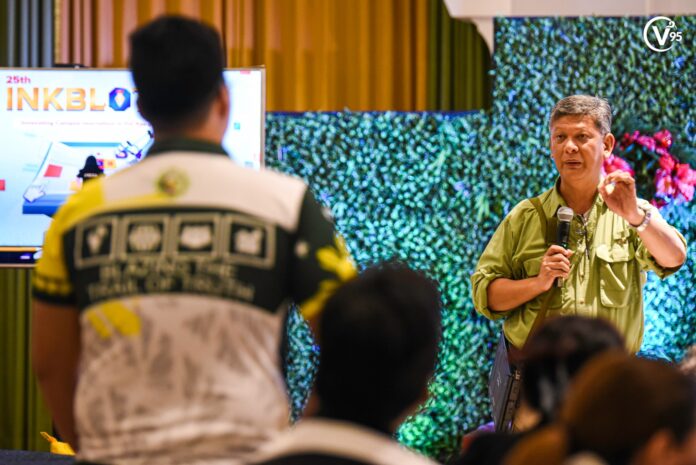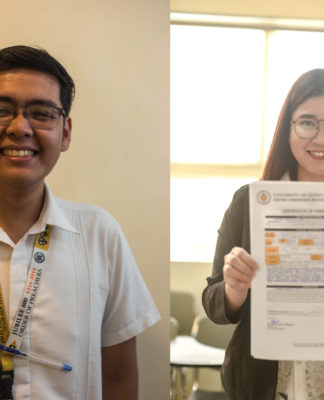
SOME OF the country’s most respected journalists urged the campus press to integrate artificial intelligence (AI) into their practices but also to be wary of its dangers, during the opening day of the 25th Inkblots, the annual UST national campus journalism fellowship, on Jan. 11.
John Nery, a Rappler columnist and editorial consultant, said AI promotes a media landscape rife with complacency and laziness. He urged fellows to adjust their writing styles to navigate these potential pitfalls.
“I think that once we recognize that the machines are learning to write better than us, then we need to adjust our writing,” he said. “You see that there is an evolution in style. It would be a challenge for individual writers to stay ahead.”
Nery lectured on opinion and editorial writing.
Political journalist Christian Esguerra, who founded Inkblots in 1999, said the campus press should not fear AI as it has been in use for “quite some time now.”
“Artificial intelligence can help us better understand our audience…because of artificial intelligence, you get a better sense of audiences’ perspectives,” he said.
Esguerra described AI as the “third-biggest disruption” in journalism, with other disruptions involving people and technology.
“AI can help, but if it will be used to produce scripts, you’re cheating yourself ultimately,” he added.
Ed Lingao, a veteran broadcast journalist who delivered the keynote address, emphasized that as AI continuously sharpens its writing skills, campus journalists must explore new ways to enhance their journalistic skills and stay abreast of AI advancements.
“Accuracy, fairness and transparency are the responsibility of journalists. AI should augment their capabilities rather than replace ethical judgment and ethical compass,” Lingao said.
UST journalism program head and Varsitarian assistant publications adviser Felipe Salvosa II said that while AI is utilized for data analysis and identifying trends in news, campus journalists must ensure the integrity of AI-driven information.
“Keep the human touch, keep it authentic, and ensure the integrity of the publication through appropriate disclosures,” he said.
The campus press should “rise to the challenge” of AI, according to Inquirer sports editor Francis Ochoa.
“AI is fast, AI is efficient, but it’s not as powerful as we think it is. We have to rise to the challenge [and] there’s no silver bullet, [so] we have to manage the risks,” he said.
Ochoa urged the campus press to “write better” and “apply human touch” as their edge against AI-generated content.
Manila Bulletin entertainment columnist Nestor Cuartero, a former UST journalism faculty member, encouraged the campus press to strive for truth.
“Be certain that everything you write is accurate and honest as you can make it. As journalists, we try to strive for truth,” Cuartero said in his feature writing lecture that featured a mock press conference with MMFF Best Actor and “Gomburza” star Cedrick Juan.
The 25th installment of Inkblots, the Varsitarian’s annual campus journalism fellowship, carried the theme “Innovating Campus Journalism in the Age of AI.”
It was the first time in four years it was conducted on-site after the Covid-19 pandemic, with nearly 300 fellows from 39 schools and student publications nationwide. with reports from Sofiah Shelimae Aldovino, Faith Nicole Gelacio, Hannah Joyce Andaya, and Judd Ericka Marie Crescini













